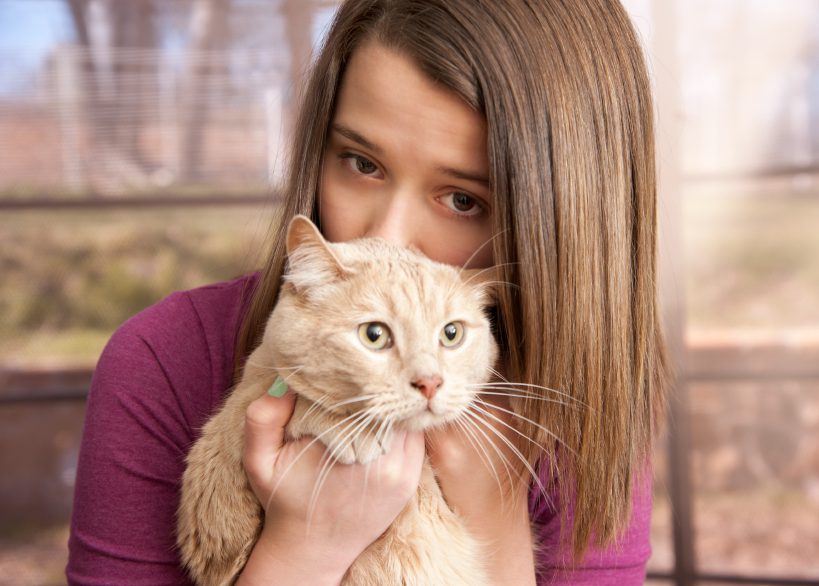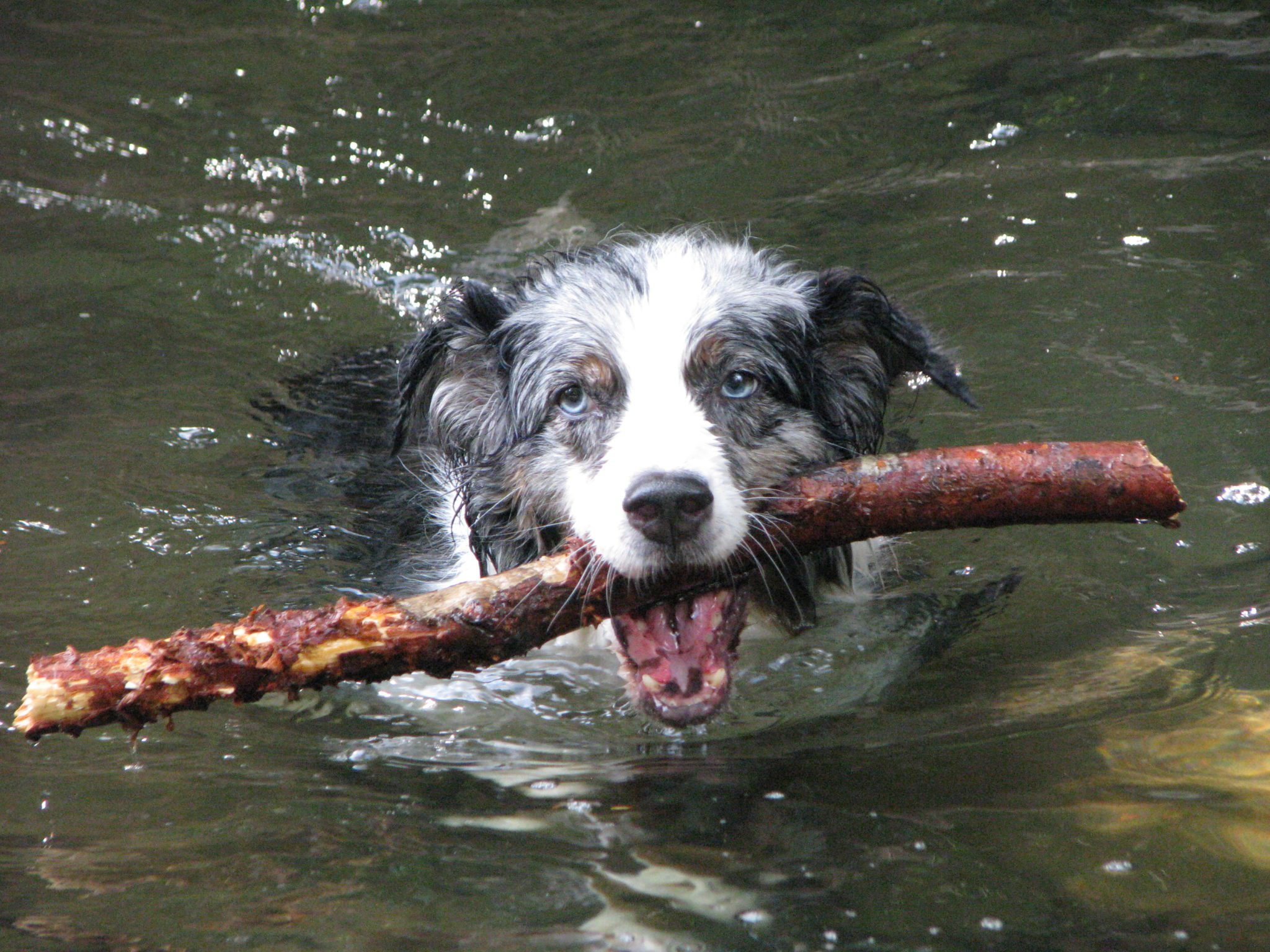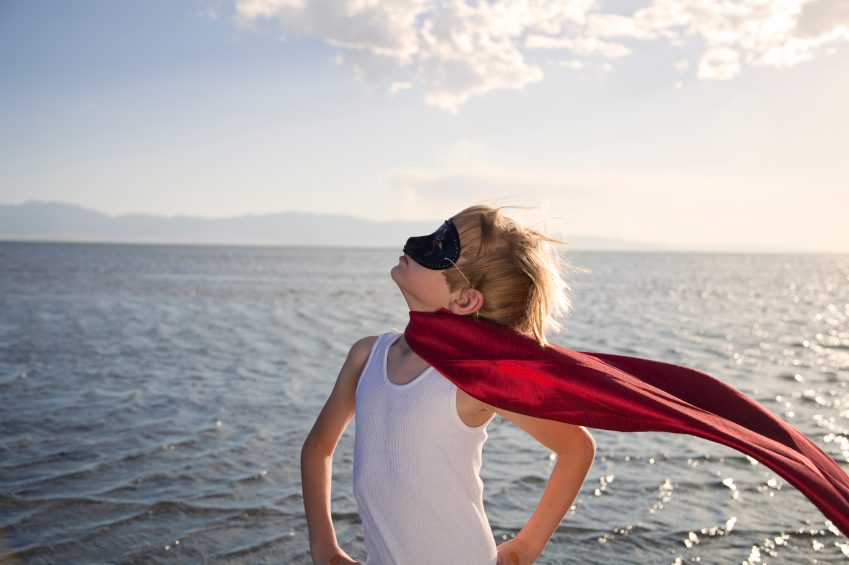How to Manage, And Help Your Kids Cope, When The Family Dog Dies
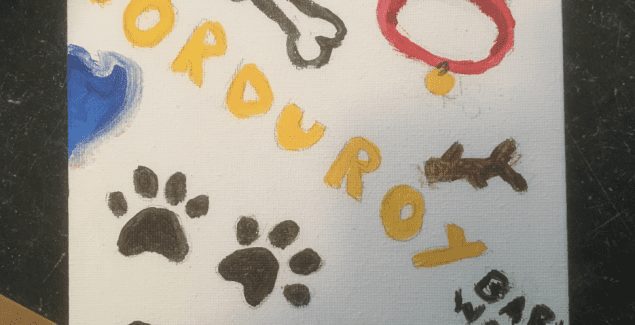
Posted in: Parenting Concerns, You & Your Family
Topics: Child + Adolescent Development, Relationships
My dog died.
Man, those are three tough words to write.
Tune in to a conversation with Dr. Schlozman and Dr. Beresin on helping kids cope with the death of a pet.
I feel both silly about and proud of how much it hurts. Still, I think I know what some of you are thinking: Dogs aren’t people. And you’re right, of course. Thank God, I’m not writing about a person right now.
Still – and you don’t have to tell me this is a cliche, which it is by virtue of being true for so many people – my big, goofy, dumb-as-a-box-of-nails dog was without question one of my closest companions.
So before I get to advising how families can cope with the loss of a dog, I have to take the first, most important parenting step of all. I have to take care of myself. You know, I have to put the oxygen mask on my own face (like you’re instructed to do in an airplane in the event the cabin loses pressure) before I help my kids.
That means I have to tell you about my dog. You’re all going to help me cope with his death by learning something about him. After all, there’s research to show it helps to talk about these things.
First, though, you should know that I’ve almost always had a dog. Sure, there were brief stints, like between college and medical school, when I didn’t, but that whole time I knew I’d get a dog just as soon as I could. I’ve had lots of dogs. In other words, I know what it’s like to lose a dog.
What I didn’t know, until recently, is what it’s like to lose the family dog when you’re a parent. For one thing, it can’t help but to drudge up fears of scarier losses – losses that we all shove to the corners of our minds, losses that we worry, magically, will become more likely if we talk about the possibility aloud. Losing the family dog when you’re a parent is like losing a member of the very family that you have vowed to protect. And even though you know it’s supposed to work this way – that dogs are supposed to die before we do – it still feels wretched. There’s even research to support this. So we’d do better to ceremonially mark the passing of a dog much the way we mark the passing of a family member. Studies suggest that these ceremonies can ease that lingering pain.
By the way, my dog’s name was Corduroy. We got him from a rescue outfit when he was about 5 months old. He had ridiculously huge paws, and he looked at all of us with a perpetually furrowed brow, his skin all wrinkly like a messy sheet on top of his soon-to-be-enormous head. He was billed as a lab mix, though the back part of his tongue was dark as coal and his muscles put football players to shame. Believe me when I tell you that my dog was ripped.
He grinned, literally.
I’d come home from work, and he’d wag his tail and show me his teeth and bow his head. I loved him from the day we brought him home, and I loved him more and more as the years went by. The memory of the day he learned to swim, his head going under the water for longer than any of us wanted but then popping back up out of the river like a fishing bobber, still fills me with pride. He might as well have been one of my daughters learning to ride her bike.
Corduroy, the big, goofy, awesome dog.
My kids, now 11 and 17, grew up with Corduroy. He was about 7 when he died last week, so I have all these warm memories of my youngest daughter sitting next to him on the front step, she an eager toddler, he an eager companion and loyal guardian. He always kept special watch over my younger one.
About six months ago he developed a very aggressive lymphoma, and because of this, we were faced with those surreal decisions that dog owners make. How much chemotherapy do we do? How much do you spend on it? As it turned out, his tumor was only a little responsive to a lot of treatment, but he stayed relatively happy until the day he died. Then the tumor seemed to cross a line, doing mortal combat with a major blood vessel, and Corduroy’s big, proud lungs filled up with blood. It was a hard death to watch. I managed to get him to the veterinarian, and he managed to give me a single, heroic wag of his tail before he closed his eyes and prepared to make his way into the unknowable beyond. The doctor and I agreed to put him down. It would have been cruel to have him continue to suffer, and I’m glad that I’m the last thing he saw before his eyes closed and that furrowed brow finally smoothed.
Corduroy was gone. Just like that. My kids didn’t get to say goodbye. My wife didn’t get to say goodbye. Besides me and the veterinarian, only our other dog, a super smart, sometimes sociopathic 7-pound Yorkshire-Dachshund mix (a “Dorky,” if you will) saw all of this transpire. I adore the other dog too, by the way. He’s more of a dog for the kids, but boy he needed us all after losing his buddy. He’s adjusting, and he’s helping us to adjust as well.
What Parents Can Do When a Family Dog Dies
So while it’s still fresh, I wanted to share some tips for parents on how to deal with the loss and help kids cope. Here are steps I’d advise taking, based on my own experience and research:
1. Take care of yourself. You don’t have to be stoic and stiff-upper-lipped. Rather, you should turn to your family (and even to your other pets if you have them) for solace. In fact, as parents, modeling healthy grieving and balanced sadness – the acknowledgement that you’re sad but that you can still function – is hugely important. It might be one of the biggest gifts dogs give us – the chance to teach our kids about how to say goodbye. This also means that if you have a spouse or a partner, lean on each other. Lean on friends and neighbors as well. There’s good evidence that this all can be a special source of comfort.
2. Know that your kids are different, and make allowances for those differences. My older daughter was much more demonstrative in her tears, but then she moved on with being a teenager. She was still sad, but she didn’t seem so sad outwardly. My younger daughter was muted, having a hard time especially at night. Then she made a wonderful painting commemorating Corduroy and she seemed to be doing better.
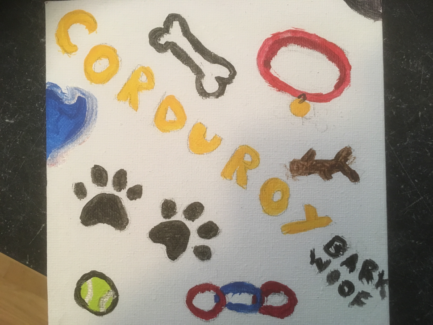
My 11-year-old daughter’s memorial to Corduroy.
Your job with all this as a parent is to go along for the ride: Your kids will handle the loss in their own ways, and you are there to answer questions, to reassure them and give hugs. Lots of feelings get stirred up when the family dog dies: guilt and worries and a kind of pristine sadness. Keep the lines of communication open. Be present.
3. Recognize the dog’s passing in some kind of formal way. Don’t act like it isn’t a big deal. A ceremony helps. That’s why we have ceremonies to mark a death. It doesn’t have to be formal, but like all ceremonies, it has to have a beginning, middle and end. That puts boundaries around the formal mourning, and it brings the family together in the process.
4. Don’t swear off getting another dog. Except in very rare and extenuating circumstances, don’t decide never to get another dog because the loss of the family pet was too painful. That just doesn’t make sense. Dogs don’t live as long as us. If we’re lucky, they die before we do. Like I said, that’s how it’s supposed to work. Figure out how much time you need, and then, if you can afford it and if the family is in agreement, get another dog. It doesn’t take anything away from the dog you’ve lost. The kid in “Old Yeller” got another dog. Old Yeller didn’t mind.
I’ve written about my dog Corduroy before (though not previously for this blog), and I imagine this won’t be the last you’ll hear of him. But I hope very soon to get another family dog. Then I can write about that dog, too.
A version of this blog originally appeared, and was written by the author, on U.S. News & World Report’s For Parents.


 Share
Share Tweet
Tweet
